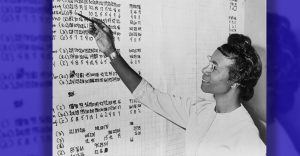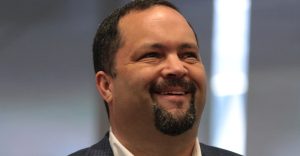Commentary
Miscarriage: An Unspoken Taboo


Narissa L. Harris
The holidays bring up a myriad of feelings. Amongst them are joy, anxiety, excitement, and loss. Many people reminisce and others dream about their wishes for self and others. During this time, many feel the loss or experience of missing a recently departed relative, parent or spouse. Some are overwhelmed with finding oneself and family now homeless for the first time. The one unspeakable source of sadness that is seldom openly talked about is miscarriage.
While the birth of a new child is often thought of as a returning of a relative or Ancestral spirit, miscarriage is surrounded by taboo and deep unstated meanings. Traditionally our lifestyles supported and honored our ability to talk to the “knowing and knowable” spirits of the yet-to-be-born, the living and those who dwell in the afterlife. This cultural practice helped, in unexplained ways, to experience uninterrupted pregnancies or miscarriage. However, it has now become especially difficult to talk about miscarriage amongst Black women. I, however, can guarantee you a Black woman is struggling with loss due to miscarriage this holiday season. I speak so factually because of my personal experience.
Before God blessed my husband and I with our blessing of joy, I suffered 3 miscarriages. So, I know first-hand the impact a miscarriage can have on the mental health of a Black woman. As a licensed marriage and family therapist, I also know that miscarriage mentally hits Black women much harder than other women. African-American women are two times more likely to have a miscarriage, stillbirth, or infant death when compared to white women. Socioeconomic status does not influence these results. There is no clear reason why Black women experience miscarriages more often than white women, but research hints to the racial trauma we experience.
Sadly, these higher levels of pregnancy loss add to the already higher rates of depression and anxiety Black women face. Additionally, there are not many programs offering support specifically geared to women who have experienced miscarriages. This lack of support creates feelings of loneliness and isolation, which for a Black woman can increase her potential for depression. Why? Because we are disconnected from our traditional cultural moorings resulting in our often feeling alone and isolated in our daily experiences of being Black. Lack of support for pregnancy loss causes feelings of isolation and intensifies loneliness.
As a mental health specialist, I believe the best way to support Black women experiencing miscarriages is to first invite them to talk with trusted family and friends and to seek counseling from African centered trained therapists. During this painful time, I believe we need to recognize and do the following:
#1 – Black women need to be held after experiencing a miscarriage.
We may say we don’t; we may even push you away. But we need to be held during this time of loss. Not just in the initial moments and days after losing a baby, we also needto be held weeks, months, and even years after our losses. Keep in mind that holding doesn’t always mean a physical hold. Sometimes Black women need to be held emotionally. Our emotions may not always be pretty. They may be loud, bold, or akin to a quiet storm. But our emotions are true to us however they show up! Make sure to hold and support the Black women in your lives who have experienced pregnancy loss…it matters.
#2 – Experiencing a miscarriage is not a “keep it together” situation.
If you don’t remember anything else from this article, remember this: MISCARRIAGE IS NOT A “KEEP IT TOGETHER” SITUATION!!! The loss of a pregnancy, a child, is traumatic, regardless of the stage of pregnancy a woman was in. Black women are prone to experience this trauma more intensely because of all the hats we wear and how we are forced to move through society. On a deeper level, many of our ancestors lost babies during the middle passage, during slavery, and during the fight for civil rights. Losing babies hits our wombs inter-generationally and trauma is etched into our psyche. Be careful not to encourage a Black woman who has lost a child to hold it together. Be cautious of the common language used “It will be okay”;”Just keep praying”; or “In due time.” These phrases mean well, and may even be true, but they also endorse the idea that Black women should move on because we are praying and/or believing that things will be okay. They endorse the need to always be strong and hold it together. But, when we allow ourselves to NOT keep it together, true and authentic healing can happen. It is important to allow a Black woman to process the grief felt with pregnancy loss. This brings me to my final point.
#3 – Expressive healing is what a Black woman needs after a miscarriage.
We need different forms of expression. We don’t always need to talk. Sometimes we just need to be in the presence of like-minded people. We sometimes need to be in the presence of people who express things cathartically, creating peace and positive energy. This can be through music, dancing, church, poetry, amd many other healing forms of expression. Often it is these deeper forms of expression, not related to our verbal abilities that allow a Black woman to not forget the hurt of losing a baby, but rather cope with it in healthy ways.
I pray that my story will help others think of the many untold stories of pregnancy loss. And if you are reading this, and still waiting on your blessing, I say to you I see you Sista: your pain is valid, your emotions are justified, and you are not alone.
The Association of Black Psychologists, Bay Area Chapter (ABPsi-Bay Area) is committed to providing the Post Newspaper readership with monthly discussions about critical issues in Black mental health. The ABPsi-Bay Area is a healing resource. We can be contacted at (bayareaabpsi@gmail.com) and readers are welcome to join us at our monthly chapter meeting, every third Saturday at the West Oakland Youth Center from 10 a.m. to 12 p.m.
Alameda County
Seth Curry Makes Impressive Debut with the Golden State Warriors
Seth looked comfortable in his new uniform, seamlessly fitting into the Warriors’ offensive and defensive system. He finished the night with an impressive 14 points, becoming one of the team’s top scorers for the game. Seth’s points came in a variety of ways – floaters, spot-up three-pointers, mid-range jumpers, and a handful of aggressive drives that kept the Oklahoma City Thunder defense on its heels.

By Y’Anad Burrell
Tuesday night was anything but ordinary for fans in San Francisco as Seth Curry made his highly anticipated debut as a new member of the Golden State Warriors. Seth didn’t disappoint, delivering a performance that not only showcased his scoring ability but also demonstrated his added value to the team.
At 35, the 12-year NBA veteran on Monday signed a contract to play with the Warriors for the rest of the season.
Seth looked comfortable in his new uniform, seamlessly fitting into the Warriors’ offensive and defensive system. He finished the night with an impressive 14 points, becoming one of the team’s top scorers for the game. Seth’s points came in a variety of ways – floaters, spot-up three-pointers, mid-range jumpers, and a handful of aggressive drives that kept the Oklahoma City Thunder defense on its heels.
One of the most memorable moments of the evening came before Seth even scored his first points. As he checked into the game, the Chase Center erupted into applause, with fans rising to their feet to give the newest Warrior a standing ovation.
The crowd’s reaction was a testament not only to Seth’s reputation as a sharpshooter but also to the excitement he brings to the Warriors. It was clear that fans quickly embraced Seth as one of their own, eager to see what he could bring to the team’s championship aspirations.
Warriors’ superstar Steph Curry – Seth’s brother – did not play due to an injury. One could only imagine what it would be like if the Curry brothers were on the court together. Magic in the making.
Seth’s debut proved to be a turning point for the Warriors. Not only did he contribute on the scoreboard, but he also brought a sense of confidence and composure to the floor.
While their loss last night, OKC 124 – GSW 112, Seth’s impact was a game-changer and there’s more yet to come. Beyond statistics, it was clear that Seth’s presence elevated the team’s performance, giving the Warriors a new force as they look to make a deep playoff run.
Activism
Oakland Post: Week of November 26 – December 2, 2025
The printed Weekly Edition of the Oakland Post: Week of November 26 – December 2, 2025

To enlarge your view of this issue, use the slider, magnifying glass icon or full page icon in the lower right corner of the browser window.
Activism
Oakland Post: Week of November 19 – 25, 2025
The printed Weekly Edition of the Oakland Post: Week of November 19 – 25, 2025

To enlarge your view of this issue, use the slider, magnifying glass icon or full page icon in the lower right corner of the browser window.
-

 Activism4 weeks ago
Activism4 weeks agoOakland Post: Week of November 12 – 18, 2025
-

 Activism3 weeks ago
Activism3 weeks agoIN MEMORIAM: William ‘Bill’ Patterson, 94
-

 Activism4 weeks ago
Activism4 weeks agoHow Charles R. Drew University Navigated More Than $20 Million in Fed Cuts – Still Prioritizing Students and Community Health
-

 Bay Area4 weeks ago
Bay Area4 weeks agoNo Justice in the Justice System
-

 #NNPA BlackPress3 weeks ago
#NNPA BlackPress3 weeks agoLewis Hamilton set to start LAST in Saturday Night’s Las Vegas Grand Prix
-

 #NNPA BlackPress3 weeks ago
#NNPA BlackPress3 weeks agoBeyoncé and Jay-Z make rare public appearance with Lewis Hamilton at Las Vegas Grand Prix
-

 Activism3 weeks ago
Activism3 weeks agoOakland Post: Week of November 19 – 25, 2025
-

 #NNPA BlackPress4 weeks ago
#NNPA BlackPress4 weeks agoThe Perfumed Hand of Hypocrisy: Trump Hosted Former Terror Suspect While America Condemns a Muslim Mayor









































